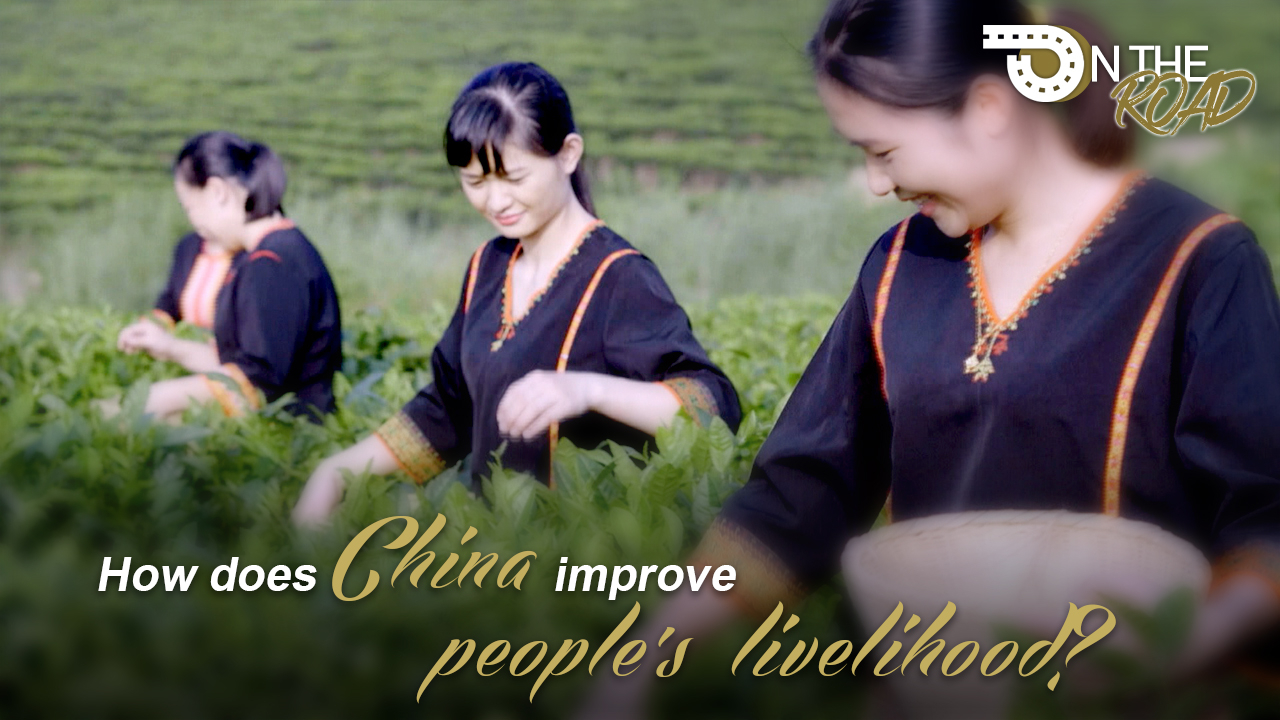03:55

To celebrate the 70th anniversary of the founding of the People's Republic of China (PRC) and present a panoramic view of the country's great journey, the 24-episode documentary "On the Road" focuses on the great achievements and valuable experiences of people of all ethnic groups in the socialist revolution, construction and reform over the past 70 years. It also recounts the touching stories and important events of the country since 1949.
The 12th episode of the series depicts how China has managed to eliminate poverty and improve people's livelihood.
Tan Yejun, in his 60s, began recording his family's total income and expenditure back in 2000. Records from the past 20 years show how life has improved for this farming family.
"We used to earn only a few thousand yuan. Now we can earn over 100,000 yuan annually, an increase more than 30-fold," Tan grinned, showing his records.
Tan was one of the biggest agricultural producers in Qian Gorlos Mongol Autonomous County, northeast China's Jilin Province. Agriculture had been the mainstay of China's economy for thousands of years and tax revenue collected from the countryside used to constitute the bulk of government revenue.
But to make sure that farmers like Tan can reap the most benefit from his hard labor, the Chinese government abolished agricultural tax in 2005, when agriculture's contribution to the government's tax revenue declined from 39 percent in 1950 to one percent in 2004.
"The changes were earth-shattering. Farming wasn't taxed. Instead we received subsidies," Tan said looking back to his life after the agricultural tax was abolished.
Since 2004, the Chinese government has implemented a minimum purchasing price policy for buying major grain produces from farmers. These days, farmers also receive financial subsidy from the government in grain production, buying edible oil and purchasing agricultural machinery.
Farming is only one area in which government policies have helped lift people's welfare. In 2006, the revised Compulsory Education Law said all compulsory education will be fully covered by the national social security system.
Xie Hailong, a former photojournalist from China Youth Daily, remembered when he first went to Kaiyang County in central Guizhou Province in the early 2000s for a series of photographs titled "I Want to Study," he saw teachers handing out textbooks to students at a local school.
"I asked the students what was different about the new books and they shouted, 'The books were free!'"
This was a direct result of the Chinese government's policy in 2013 that exempted students in rural areas from tuition fees and miscellaneous expenses. It provided them with free textbooks, and offered subsidized accommodation for students from impoverished families.
"For 40 years, I've used this camera to document children growing up in the countryside. The progress in education has been remarkable," the photojournalist said.
Improving people's livelihood is a task that has no end and the Chinese government has been working to elevate people's standard of living. China has already lifted more than 500 million people out of poverty, and it vows to eliminate poverty in rural areas by 2020.
With 2020 just around the corner, China is set to impress the world with its achievement.